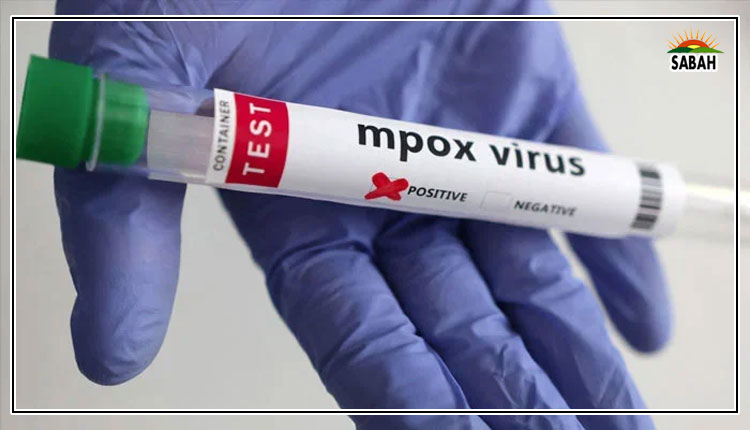Is it time to worry? … Dr Atika Rabia
The most recent case of mpox was reported at Islamabad International Airport on December 18, 2024. This adds to a total of eight cases confirmed this year in Pakistan.
As the world continues to heal from the long-standing effects of the Covid-19 pandemic, there is growing fear of another health crisis – mpox. The recent rising cases of mpox across different countries have put health authorities on high alert to take essential steps to prevent it from becoming the next global pandemic.
Mpox is caused by the monkeypox virus which belongs to the family of viruses that includes the smallpox virus as well. Mpox is a self-limiting febrile illness. People suffering from mpox present with clinical symptoms of high fever, sore throat, body aches, and lymphadenopathy (swollen neck glands). This is associated with an itchy and painful rash appearing initially on the face. It can later involve the whole body with pus-filled deep-seated skin lesions that can vary from 10 to over a thousand.
In rare but severe cases complications like pneumonia, encephalitis, or secondary bacterial infection of skin lesions leading to ulcer formation can occur.
Mpox is a communicable disease; it can pass from one person to another through close skin contact – for instance, touching contaminated objects, during sexual relations, or inhalation of respiratory droplets of a symptomatic person. Being zoonotic, the disease can be transmitted from infected animals such as rodents to human beings directly. This can happen through the scratch or bite of an animal, consuming contaminated food or directly touching skin, or infected body fluids of an affected animal.
According to the WHO, the first case of mpox was detected in the Democratic Republic of the Congo (DRC) in 1970 and has remained endemic there. In May 2022, the WHO announced it as a public health emergency as it spread rapidly through sexual contact across different geographical borders and territories in places where it was not endemic previously.
According to the CDC, last year (2023), thousands of cases were identified with a new and more serious strain of the mpox virus (clade 1b) in DRC and four of its neighbouring countries with more than 500 deaths recorded, a sharp rise from previous years.
The rapid emergence and spread of a new clade of mpox across African countries this July has been described as a concerning situation by Dr Tedro, the director-general of the World Health Organization (WHO) who declared mpox a “public health emergency of international concern” (PHEIC) – the WHO’s highest-level alert – on August 14, 2024.
As of December 24, 2024, all recorded cases of infection that have been confirmed in Pakistan this year have been among travellers arriving at international Airports. All infected individuals have recovered, and no human-to-human transmission has been reported locally.
The world is seeing a surge in mpox cases due to frequent travelling across borders. Also, the effectiveness of the smallpox vaccine is waning; the vaccine had previously offered cross-protection against the monkeypox. The lack of antivirals against mpox is another reason for the increase in affected cases.
In response to this public health emergency, the WHO has established an Access and Allocation Mechanism (AAM) in collaboration with other international health organisations and civil societies such as Gavi. This is to ensure that the limited supplies of mpox vaccines and treatments reach the places that need the most. This technique underscores the lessons learned from the Covid-19 pandemic to stop the transmission of infection and save the world from experiencing another worldwide pandemic.
Pakistan has activated the National Command and Operation Center (NCOC), which has implemented measures including a strict screening system at Points of Entry (POEs), establishment of referral hospitals and quarantine/isolation facilities, strengthening surveillance and laboratory networks to track symptoms reported in hospitals for early detection of new cases and contact tracing.
Moreover, there is a need for mass awareness of the public regarding the risks of catching the infection and encouraging preventive behaviours to prevent the evolution of the outbreak. By adopting the following steps, one can avoid contracting the infection.
One, frequently with soap and water, promoting good hygiene, and ensuring proper food safety practices. Two, practising social distancing. Avoiding contact with people who may be infected with the virus at least 1m from each other. Three, staying away from sick animals showing signs of illness. Four, wearing a mask that covers your mouth and nose when around others.
GPs can collaborate with public health authorities to develop and disseminate culturally appropriate educational materials and messages to raise awareness.
While mpox does not pose the same immediate threat as Covid-19, the latest outbreak has brought attention to the vulnerability of the general population to this neglected illness. Implementing public health measures can not only protect individuals but also break the chain of transmission in the community.












